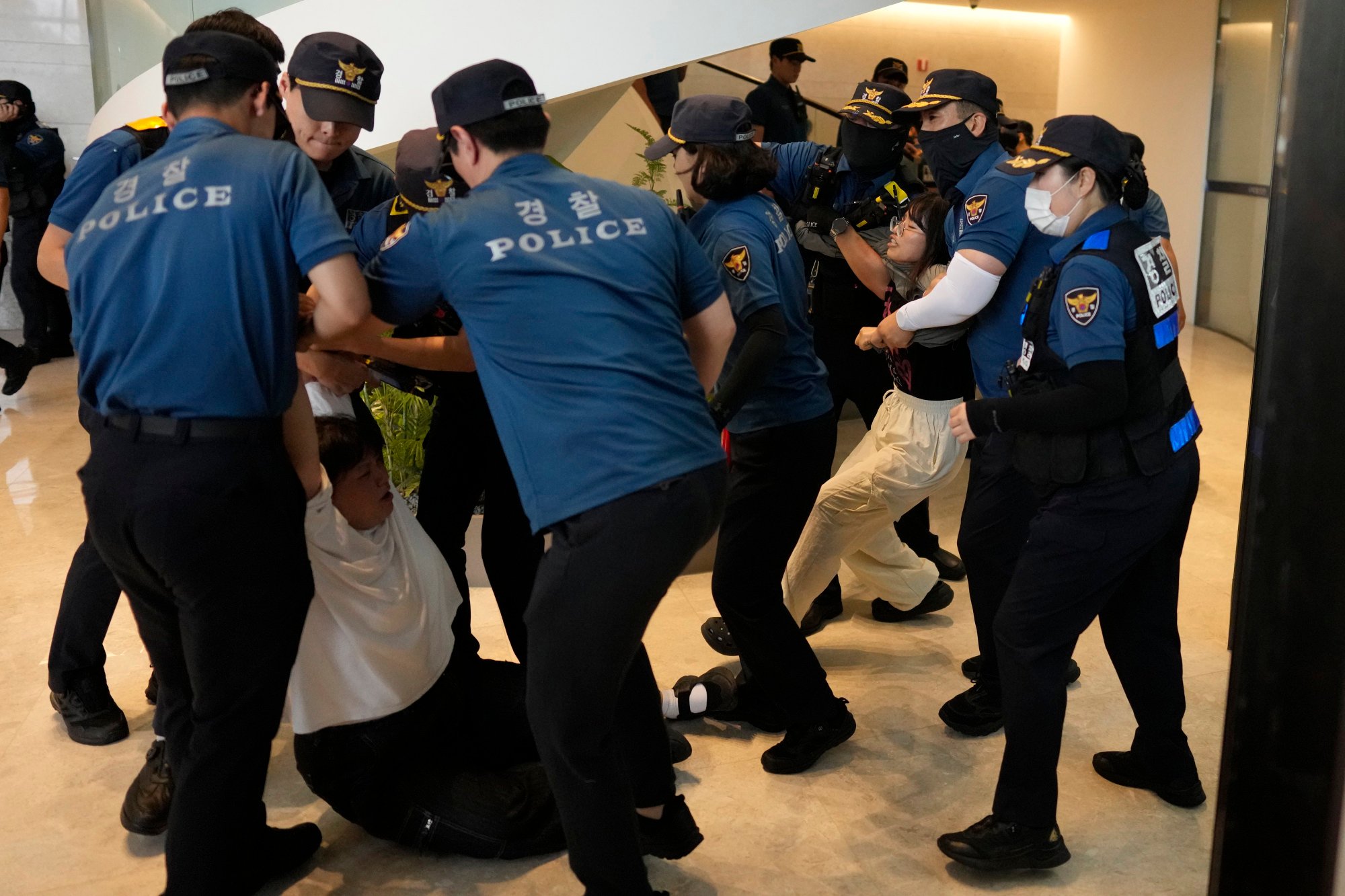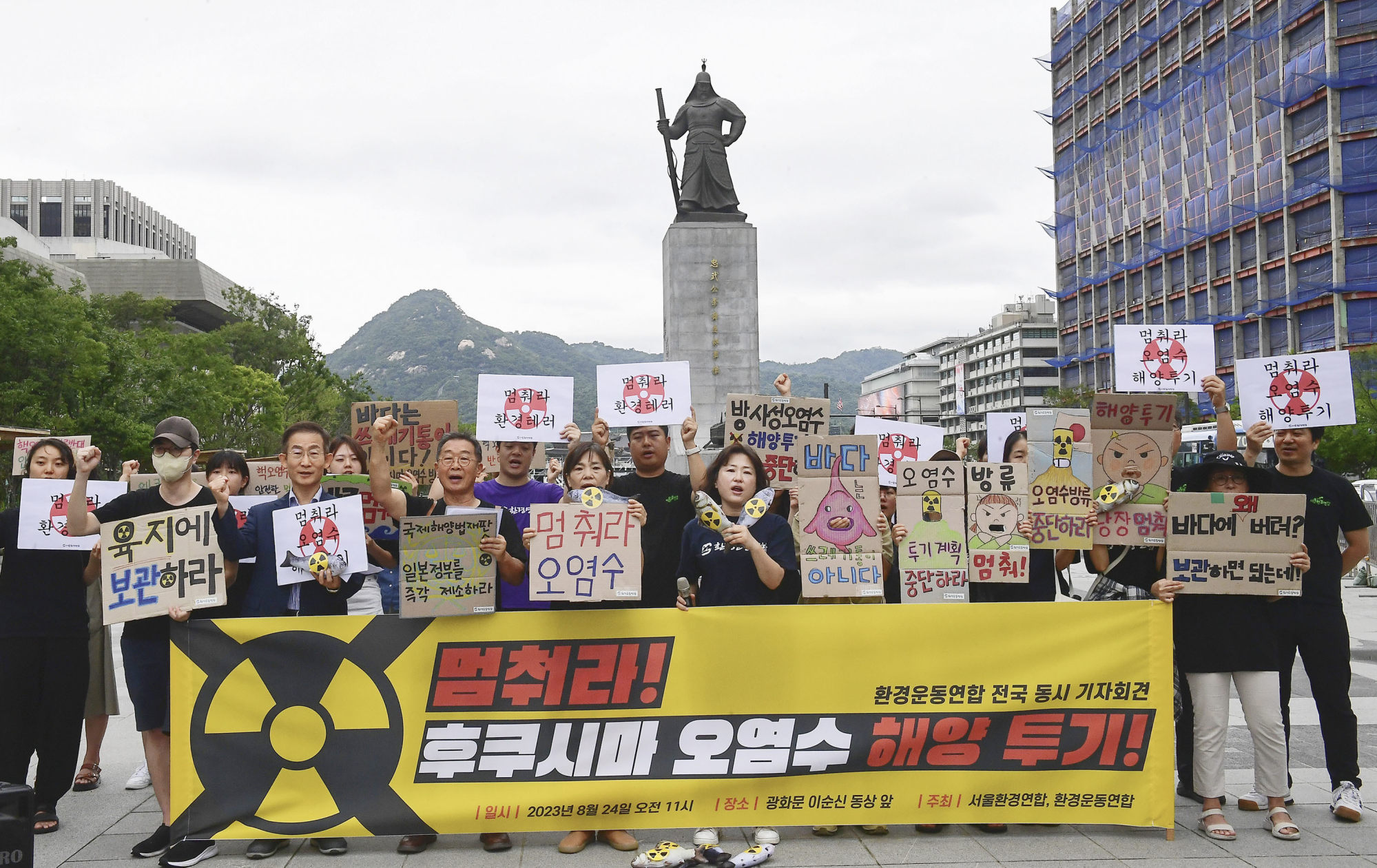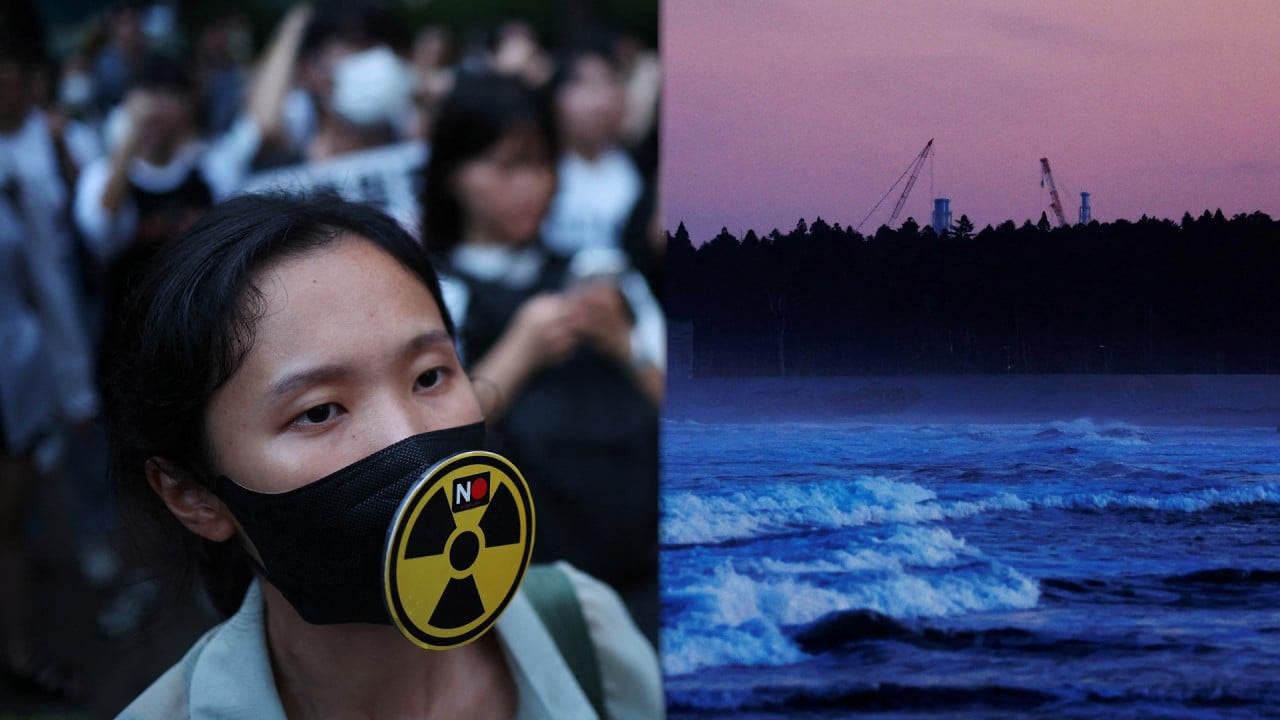Han also criticised what he called a “politically driven” campaign using “fake news” to fan fears.
Social media posts in China and South Korea have included false claims about the release, including doctored images of deformed fish with claims they were linked to Fukushima.
Despite this, Han appeared to contradict the administration’s stance by calling on Japan to ensure transparency in the water release plan, and vowing to stick with an existing ban on seafood from Fukushima and surrounding prefectures.
“The government urges the Japanese government to disclose relevant information transparently and responsibly in the discharge process that will continue for the next 30 years,” Han said. “What matters now is whether Japan will strictly adhere to scientific standards and provide transparent information as promised to the international community.”
Kim Gi-hyeon, head of the ruling People Power Party (PPP), also charged the opposition with spreading “fake news” about the health risks of the radioactive water and stirring up public resentment against both Japan and Yoon.
“The DPK must immediately stop its anti-national activities that are destroying fishermen and civilian life with false propaganda in order to … win [the parliamentary elections in April next year],” he said.
The DPK, which has a legislative majority over the PPP, on Thursday accused Japan of “environmental crimes”, and said it was planning new legislation similar to a China-like blanket ban on all Japanese seafood produce.

Outrage continued to mount across South Korea on Thursday despite the government’s reassurance, with 16 university students arrested while attempting to break into the Japanese embassy in Seoul in protest against the water discharge.
About 40 fellow students later held a press conference in front of the building, waving banners and chanting slogans against the water release, local media reports said.
Representatives of fishermen from across the country on Thursday held an emergency meeting in Seoul and called for authorities to step up radiation monitoring and take measures to help bolster seafood consumption.
“The consumption of seafood has already plummeted due to the spread of political debates and uncertain information even before the release of contaminated water,” they lamented in a statement. “This crisis is threatening the very existence of the fishery industry.”
The DPK on Thursday staged a street march in the city centre, following a candlelight protest outside the National Assembly the previous day that drew more than 1,000 participants. It has also called for a massive rally on Saturday.

Japan has said the water release is safe. The International Atomic Energy Agency approved the plan in July, saying that it met international standards and that the impact it would have on people and the environment was “negligible”.
Critics accuse Yoon of approving the Fukushima water release for the sake of improving bilateral ties despite the legacy of Japan’s colonial rule over the Korean peninsula, and the United States’ attempts to rope both countries into countering China, Russia and North Korea.
Park Won-gon, a political-science professor at Ewha University in Seoul, said the mounting outrage in South Korea over the discharge was turning into political capital for the opposition in the lead-up to next year’s parliamentary elections.
“There is no room left for science to work in this highly charged atmosphere. With an absolute majority of Koreans opposed to the release, the opposition party won’t let go of this chance to rally support to it ahead of the elections,” Park told This Week in Asia.
“However, the Yoon government is unlikely to yield to pressure and call for Japan to stop the release of contaminated water to the detriment of its efforts to improve ties with Japan.”
Additional reporting by Reuters, Agence France-Presse


